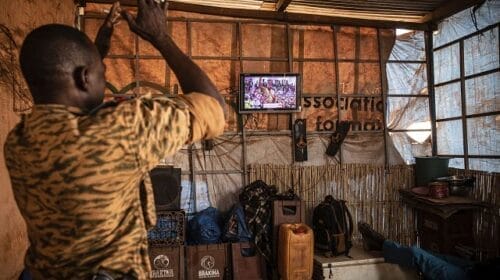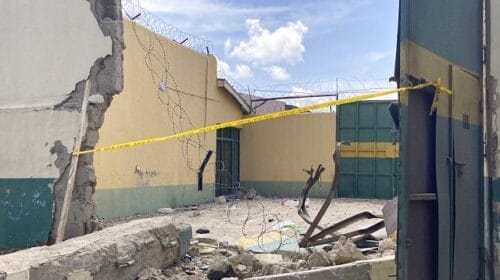Sweden reassures AfDB President of continued strong support for Africa

African Development Bank Group President Dr Akinwumi Adesina bolstered continued strong support for the institution and its development initiatives recently from one of the group’s non-regional member countries, Sweden.
The bank chief paid a two-days official visit to Sweden—a member of its impactful Nordic constituency—in late September. He met with various senior officials, notably Jenny Ohlsson, state secretary and governor of the bank for Sweden ; Helen Eduards, director general for international development cooperation at Sweden’s Ministry of Foreign Affairs; Carin Jämtin, director general of Sweden’s International Development Agency (SIDA); and Pernilla Meyersson of the Swedish Central Bank.
There was broad agreement that the African Development Bank—through its High-5 priorities—and the Swedish government—through the objectives of the Ministry of Foreign Affairs and SIDA—shared common strategic priorities, most notably: sustainable development, climate change, food security, the promotion of a productive private sector and the importance of education and gender equality.
Adesina spoke of the strategic initiatives the bank had launched to promote gender equality and access to financing for women entrepreneurs. He highlighted the bank’s Affirmative Finance Action for Women in Africa (AFAWA) program as one of the platforms through which it was doing this.
He explained that the African Development Bank monitored and tracked the impact of each bank investment on gender through a gender-marker system.
Equally emphasised was the bank’s focus on making more opportunities available for youths. Adesina said the institution was promoting jobs for young people through its Youth Entrepreneurship and Innovation Trust Fund. He said it had proposed a novel network of youth entrepreneurship investment banks, which would soon go before its executive board for approval, and which could be launched before the end of this year.
Adesina said the African Development Bank—with the International Labour Organization—was designing a tracking and monitoring system that would identify the impact of all the bank’s operations on job creation.
There was general agreement on the need for continued cooperation in the promotion of renewable energy, which makes up 83% of the bank’s current portfolio in energy – primarily through the Desert to Power initiative, which the African Development Bank is funding in Africa’s Sahel region. Sweden expressed its support to the Climate Action Window that the African Development Bank will create to help low-income African countries access additional resources. These are resources that will help these countries address climate change impact and invest in climate adaptation.
There was agreement on the need to spur private investments toward Africa, a goal to which SIDA is keen to contribute by offering de-risking instruments like guarantees.
Adesina confirmed that building climate resilient agriculture would be an activity with high potential for development and business opportunities. He said the bank was promoting this through two pivotal programs: its Technologies for African Agricultural Transformation (TAAT) and its Special Agro-Industrial Processing Zones.
The African Development Bank chief said the bank’s African Investment Forum, scheduled for early November, would be an ideal platform through which to promote private investment in Africa. He invited Swedish companies and institutional investors to seriously consider attending the upcoming boardrooms of the forum that are scheduled to take place in early November in Abidjan, Côte d’Ivoire.
SIDA and the African Development Bank agreed to work towards mobilising Swedish institutional investor interest in projects through a possible dedicated session of the Africa Investment Forum.
Sweden has been supportive of the African Development Bank’s speed in responding to the Covid-19 pandemic with its (the bank’s) Covid-19 Response Facility, and to a potential food crisis with its African Emergency Food Production Facility.
Meeting with IKEA Chief Executive Officer Per Heggenes, Adesina invited IKEA to join the TAAT platform and be part of various other bank-driven initiatives to bring about sustainable development in Africa.
Heggenes said that while IKEA’s resources were modest, it welcomed the African Development Bank head’s plans to address Africa’s development challenges with initiatives of scale. He said IKEA had contributed to the climate and planet fund with the Rockefeller Foundation.
He said it was important to focus on things that could bring about demonstrable change, including support for small-scale energy projects, with a pragmatic approach on gas. He said it was important to create entrepreneurial jobs, especially with a view to addressing the issue of migration.
It was agreed that the bank and IKEA would explore ways of working together.




